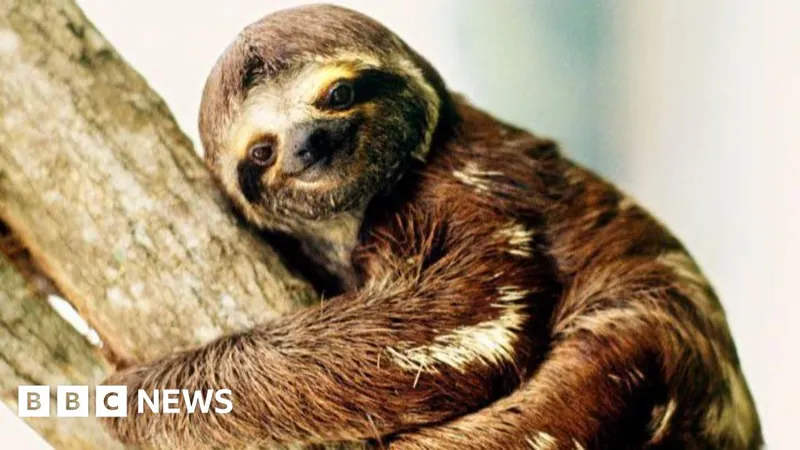
Unlocking the Secrets of Sloths: How Their Sluggishness Led to Survival
2025-05-22
Author: Ling
The Unexpected Success of Sloths
Sloths may be famous for their sluggish movements and leisurely lifestyle, but a groundbreaking new study suggests that their seemingly slow behavior could be the secret to their survival. While many animals have faced extinction, sloths have clung to life, primarily due to their unique evolutionary adaptations.
From Giants to Tiny Treasures
Once upon a time, the Americas were home to a stunning variety of sloths, including gigantic species that roamed the land and could grow as large as elephants. However, as humans began to populate the continent and hunt large mammals, these immense creatures faced rapid extinction. Today, only the smaller, tree-dwelling varieties remain, primarily found in the lush rainforests of South and Central America.
Research Findings: Size Matters in Survival
In a detailed analysis of sloth evolution, researchers explored how these creatures adapted their body sizes to withstand various climate changes over millions of years. Their findings revealed that the decline of larger species coincided with the arrival of humans, who found them to be easier prey. Meanwhile, the smaller sloths, who were cleverly camouflaged among the leaves, lived to tell the tale.
A Call for Conservation: The Future of Sloths
Dr. Alberto Boscaini from the University of Buenos Aires, who led the study, emphasized the urgent need for conservation efforts. "We must act now to prevent the total extinction of this group of animals that represents a staggering 30 million years of evolutionary history," he said. The survival of the remaining sloths is critical, not just for their species, but for the entire ecosystem.
The Science Behind Their Slow Lifestyle
Living sloths are known for their incredibly slow movements, a trait linked to their low metabolic rate. This adaptation allows them to conserve energy and evade predators. Dr. Daniel Casali from the University of São Paulo echoed Dr. Boscaini’s sentiments, lamenting that while we can work on preserving existing species, the loss of their ancient relatives is irretrievable.
In Conclusion: Nature’s Unlikely Survivor
The fate of sloths stands as a poignant reminder of nature's resilience and vulnerability. Protecting these adorable but endangered creatures is not only a matter of conserving their legacy but also a step towards maintaining the biodiversity of our planet. Without action, we risk losing more than just the slow-moving sloth; we risk erasing an entire chapter of Earth’s history.


 Brasil (PT)
Brasil (PT)
 Canada (EN)
Canada (EN)
 Chile (ES)
Chile (ES)
 Česko (CS)
Česko (CS)
 대한민국 (KO)
대한민국 (KO)
 España (ES)
España (ES)
 France (FR)
France (FR)
 Hong Kong (EN)
Hong Kong (EN)
 Italia (IT)
Italia (IT)
 日本 (JA)
日本 (JA)
 Magyarország (HU)
Magyarország (HU)
 Norge (NO)
Norge (NO)
 Polska (PL)
Polska (PL)
 Schweiz (DE)
Schweiz (DE)
 Singapore (EN)
Singapore (EN)
 Sverige (SV)
Sverige (SV)
 Suomi (FI)
Suomi (FI)
 Türkiye (TR)
Türkiye (TR)
 الإمارات العربية المتحدة (AR)
الإمارات العربية المتحدة (AR)